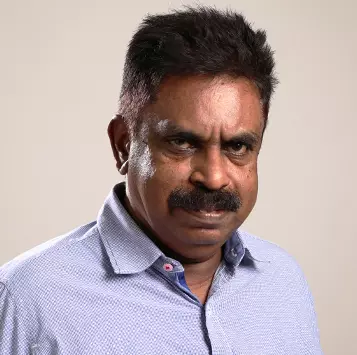JUST SPAMMING | Could we aspire to empty out prisons or is it a utopia?
The Dutch reduce prison use with alternative sentencing, but India's overflowing prisons tell a different story of incarceration and reform

Two different nuggets of information emanating from faraway corners of the world converged in my mind and had me mulling over them last week. One was an article in the Guardian, in which the writer, a Dutchman, proclaims ‘we’re closing our emptying prisons’ and goes on to proudly ask, ‘what can other countries learn from how we did it.’ The other one was a news story from Hyderabad on the passing away of former Delhi University English professor G N Saibaba.
In the boastful write up on the Dutch seeing their prison population decreasing by more than 40 per cent in the last 20 years, for someone from India, there was a silver lining - a line that said: This does not necessarily mean that there is actually less crime overall. So the question is if crimes are still happening in the Netherlands, why the hell are those people converting their prisons into cultural hubs like the monumental Dome Prison in Haarlem, opened in 1901, becoming a cinema?
A reason cited by them is the changes in reported crime and the nature of crime. As a criminologist put it there was less conventional, violent crime, like murder. Apart from that with a lot of conventional crimes going online and becoming less visible, fewer serious case were coming to the police and courts, landing fewer people in jails. More than that, what they say is that the overall Dutch attitude towards imprisonment could be instructive.
As the Dutch criminologist Francis Pakes had said the Dutch people were more aware that a stay in prison would do more harm than good. Even if a jail sentence helps society rid a criminal for a while, they return to only resume their past activities, sometimes in a more ruthless fashion due to their exposure to the violent prison climate. Many of them also build up a wider criminal network during their stay in the jail where they rub shoulders with like minded and worse minded individuals.
The Dutch learnt that even shorter sentences can turn an offender’s life upside down and the excesses committed during the Nazi occupation of Netherlands during the Second World War gave rise to a culture of Dutch courts not imposing long prison terms. Dutch judges are more inclined to order community service or a suspended sentence for minor offences, which reduces the possibility of the individual committing the offence once again.
It has also been realized that such mild sentences – the judges are said to hand out lesser terms even for crimes like theft that require incarceration – reduces the cost on the government. For, long sentences put enormous pressure on the prison system itself, though the lengths of sentences for violent and sexual crime had been increased and such offenders were never spared. There is a perception that the staggering costs on society for keeping those committing minor offences behind bars could be better used on crime prevention.
However, it is clarified that the attitude of Dutch judges, who are not keen on sending offenders to jail, was not the only reason for the decline in prison population. The country always had a lower proportion of people in jail when compared to other European countries like England and Wales and the USA. Yet the message that the Netherlands sends across to other nations is that it is not necessary for a society to become less safe with less people in jails. Dutch streets are safer to walk around at night than neighbouring Britain, where incidents of crime and concerns about crime are higher.
Going by these facts from the Netherlands, I am not dreaming about the Puzhal prison complex closing down to give way for a gated community or an electronics goods factory, not even any time in the future. For, Tamil Nadu that has nine central prison complexes, two of them in Puzhal itself, nine district jails, 92 sub-jails, 3 women’s jails, 12 borstal schools, 3 open jails and 5 special jails, needs more space for convicts as all jails are bustling with hectic human activity.
Of course, we did close down the Madras Central Prison in 2009 and handed over the land to Chennai Metro Rail and the Madras Medical College for their diverse use despite a popular demand for converting the 172-year-old prison into a museum in view of its historicity. But that process was not initiated because the inflow of prisoners had dwindled. They were only diverted to Puzhal, which is now overflowing. But how does that chain of thoughts about prisons sync with the English professor’s obituary?
Well, Saibaba’s story reminded me that India can never go the Dutch way in sending only hardcore criminals to jail. Prisons are an integral part of our polity, culture and psyche that we need them to house our citizens like Saibaba and Stan Swamy who had the habit of meddling with people. Saibaba, from Andhra Pradesh, was paralysed down the waist. Despite his disability, which was 90 per cent, he was sentenced to jail and was lodged there for 10 years. Stan Swamy, a Catholic priest hailing from Tamil Nadu, was jailed though he suffered from Parkinson’s disease and was unable to even hold a glass to drink water from. In the jail, where he died, he was denied a sipper to overcome his disability. The Netherlands, by the way, is thousands of miles away.

